I attend a lot of national conferences to speak about the work of community development credit unions and Prosperity Connection. Whether I’m in St. Louis, or talking to people from other parts of the country, I always start by saying, “My name is Paul Woodruff. I’m from St. Louis, and St. Louis is a great place. We have amazing things that are happening. You should come and visit us. You should see us. You shouldn’t believe anything that you hear in the media, because for every negative thing that you hear there are five, or six, or seven, or eight amazing things happening, and there are amazing people. So, don’t judge us from one event. Don’t judge us on all these surface level things. Come and see for yourself.”
Where you live and the color of your skin determine whether or not you can fully utilize and realize your financial dreams.
I’m the, as I call it, accidental Executive Director of Prosperity Connection. I didn’t intend to do this work. A good place to start is, “What is it that we do?” and then, “How did I get here?” So, Prosperity Connection exists to increase the financial capability and capacity of all people throughout St. Louis City and County, and beyond, if we get to that point. What financial capability and capacity really comes down to is equipping people with the knowledge to manage their finances effectively; to be cognizant of the goals, means, and the methods to get to where they want to be; and then connect them with the resources that are going to allow them to realize those goals. It’s helping people to build a positive credit file with the credit bureaus as well as get introduced to financial institutions, whether that be credit unions or banks, that can help them to transact their business through checking and savings accounts, build credit through credit building loans, buy a car or buy a house, and do what they need to do to live the life that they want to have. The unfortunate thing is that – nationally, this is true, but especially in St. Louis – where you live and the color of your skin determine whether or not you can fully utilize and realize your financial dreams.
We work predominantly in low-income African American communities, and we have found that there’s a need in that arena because there is still a huge number of African American families and individuals that are unbanked, meaning they don’t use a checking and savings account, they do not have any credit file, or have severely impaired credit files. In a lot of cases, somebody else has abused their credit or their financial information which prohibits individuals from actually accessing information. So, it’s nothing that they did wrong. Or, it’s instances where there was just too much month at the end of somebody’s paycheck and they couldn’t make all their bills, so their account got closed. They got charged off for a loan and then that’s put them behind on a ton of levels. We work to help people get back on the right financial footing.
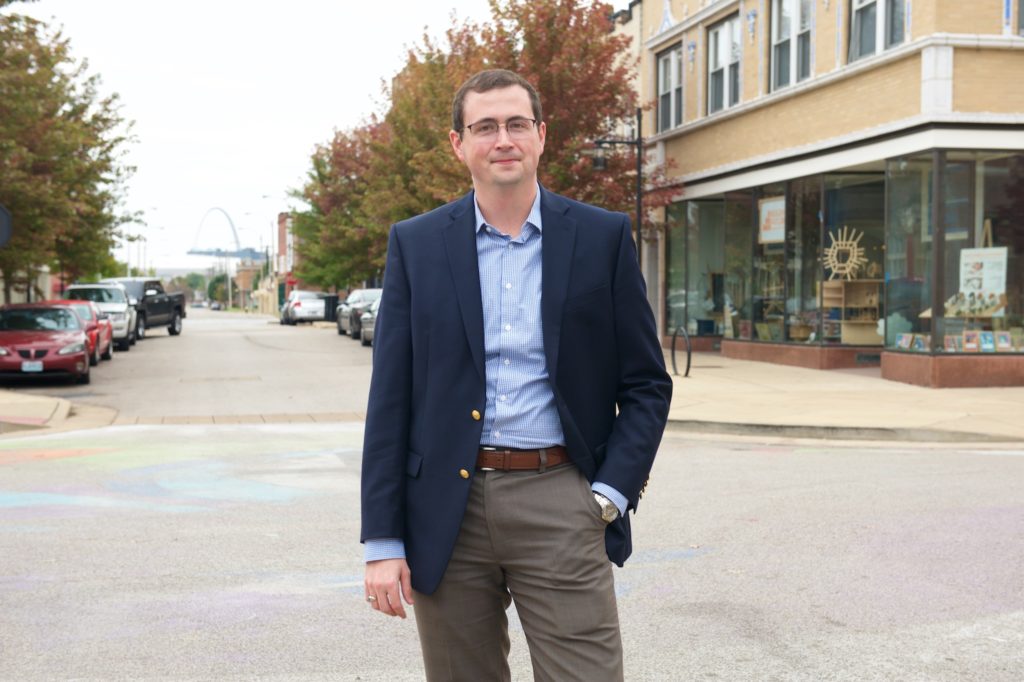
Paul Woodruff, photos by Lindy Drew
St. Louis Community Credit Union has been around for 75 years and it’s been committed to serving all people, but specifically people of modest means. In 2009, the credit union realized they needed to expand their presence in the financial education field. I was hired that summer as a teller after going to graduate school at St. Louis University and getting my Masters in public administration. My research focused on looking at credit union alternatives to payday loans, predatory loans. St. Louis Community Credit Union happened to be one of the case studies that I looked at and I knew that they were amazing because they gave opportunities to people that always hear “no.” And when you constantly hear “no,” it’s easy to see why people give up or are not active participants, whether it’s the political process, the financial process, or any of those things. Through my research, I came to believe that St. Louis Community Credit Union was this beacon for financially underserved people that can go to the institution and get a “yes” rather than constantly hearing “no.” I started off as a teller because that was the available opportunity and, within a couple of months, I moved into the community education space. I learned what it meant to provide financial education and those types of services to folks that did not ever have a class on credit or had never had exposure to maintaining their account in a healthy, and what we would call, normal way.
At that time, the credit union decided to form a separate 501(c)3 non-profit with the purpose of managing financial education services. They didn’t really have an idea that this concept was going to get so big, and part of it was because we didn’t know the true scope of the landscape. Through my work, I moved into doing fundraising for the credit union which bled over to doing fundraising for Prosperity Connection, and ended up managing community development for the credit union which meant maintaining relationships with community partners and establishing relationships with banks. A lot of people don’t think that banks and credit unions work together, but because of our special mission, it’s attractive for banks to work with the institution because the credit union can help them to accomplish community development goals for lending, service, and volunteerism whereas most credit unions can’t. A unique space I’ve been in is developing tight relationships with banks that are paying the credit union to operate branches in financially underserved areas. They also provide grants and loan funds to expand the capacity of the credit union to underwrite more affordable car loans and small dollar loans to compete with payday lenders.
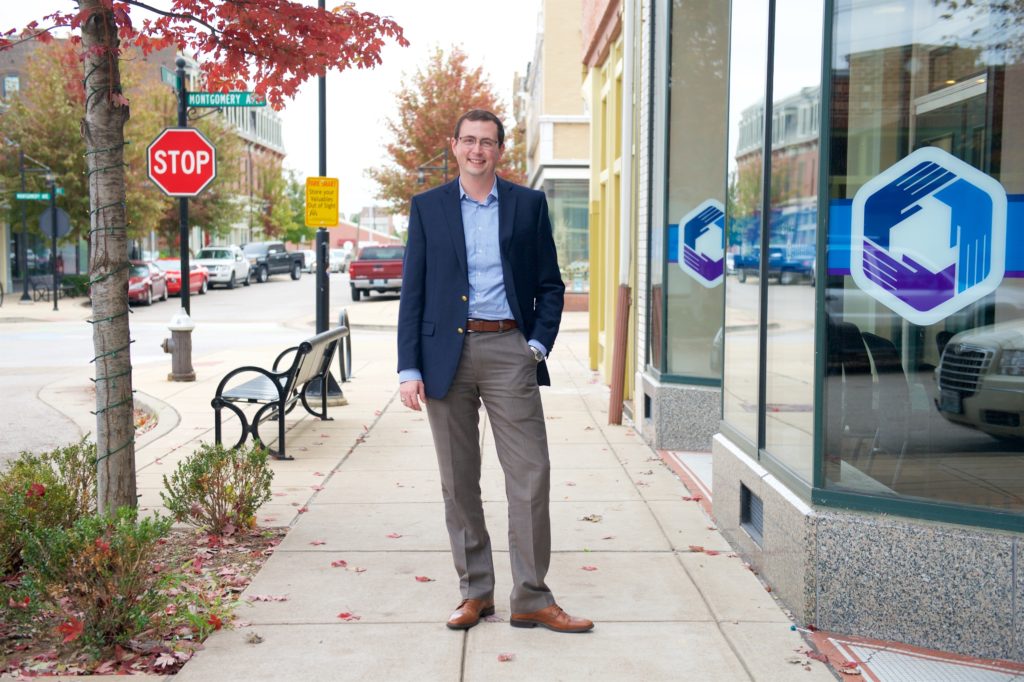
In 2013, I got the opportunity to become the Executive Director of Prosperity Connection. We were deciding what to do with this thing, and I don’t know that anybody inside the institution wanted to take it on. So, I told my bosses, “I’ll do this. I’ll try this. I don’t know what I’m doing, but I’m going to do this.” They took a leap of faith and allowed me to move into the role.
We had one educator, we had a support staff of one admin position, and me. We were all paid by the credit union. I think we had an annual budget of $10,000 – $15,0000. No big money in. Since 2013 to almost the end of 2016, we now have 11 full-time staff members, eight of which are fully paid for through philanthropic sources. We have a loan fund that we use to offer small dollar loans to consumers whom the credit union can’t help. We’ve expanded rapidly. We have three locations, and we have a fourth location coming on at the beginning of 2017. The fact that we went from having a $15,000 a year budget to just under $1 million dollars a year to operate, shows that there’s a need, a hunger for financial capability, and that people of modest means do want to make a difference in their financial lives. There just needs to be an outlet to provide services.
Prosperity Connection has benefited from seeing that because there’s a need out there, we could make a marketplace for this and attract corporations, foundations, and individuals that wanted to be a part. So, when the Ferguson Commission was formed, and as they started to form their subcommittees, my CEO, Patrick Adams, who runs the credit union, contacted Felicia Pulliam, who he’d known through Focus St. Louis, and said, “We want to be a part of this.” She invited us to be a part of that subcommittee on Economic Inequity and Opportunity, and we got to help shape some of the mandates that were eventually put in the report. And what was interesting, and disheartening, was that St. Louis Community Credit Union was the only financial institution that came to the table. St. Louis has been known as a place where banks have been very aloof in terms of meeting the need of low-income borrowers. Where were they? They all know that they need to do this, but they didn’t show up. And then for Prosperity Connection, it was an opportunity for us to be able to highlight the real need for concentrated financial education efforts. Another disappointing thing is that the City of St. Louis has an Office of Financial Empowerment. Where were they? There are a number of banks and credit unions that provide financial education to thousands of people here. Again, they didn’t show up.
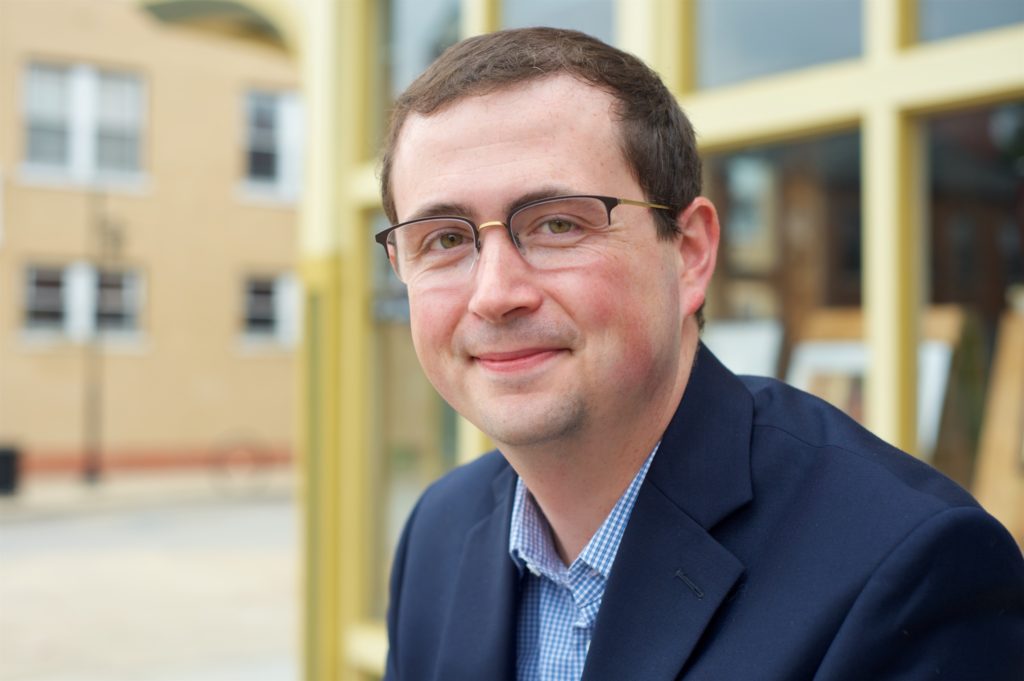
We took this charge very seriously to make sure that that voice, that side of community development banking and financial education, could be put forward. We worked hard to make sure that there was inclusive language about financial empowerment centers and inclusive language about supporting community development financial institutions. So, when the report came out and we saw that a lot of our recommendations were put in there we said, “All right, we’ve got a platform. We have this basis to be able to say, ‘This is important. This matters in St. Louis. This matters nationally.’”
From that, David Stiffler from Equifax, who manages their philanthropic outreach and community development efforts in St. Louis as well as nationally, came to me and said, “We want to put another Excel Center into the community. And we want to do this in Old North where there’s been a lot of positive development and it’s starting to expand out.” So, Equifax was one of the early corporations that took that call seriously. From that, also, we’ve received significant support from Stifel Bank & Trust, U.S. Bank Foundation, and PNC Foundation, which we just received word we received a $15,000 grant to continue to support this effort here. We had been included inside of the Choice Neighborhoods Grant application, because a financial empowerment center is a part of that request. Financial education services are critically important to the success of the residents in Preservation Square, the focus for the Choice Neighborhoods Grant, as well as the surrounding community.
For us, the way that we’ve seen the calls to action from the Forward Through Ferguson report manifest is through opening facilities, gaining additional support, and getting the attention of important people that have a say monetarily and from a policy perspective. I’m astonished to see all of these pieces come together. It’s going to take numerous actors coming together to do this work. It’s been exciting to actually see that our experience and passion for this was captured in that report and then become a part of change that is actively happening. It’s personally gratifying, but also the fact that we’re reaching more people because others now believe in what we do, is really great.
She just emailed me and told me that, “For the first time in my adult life, I don’t have financial stress. I feel like I can actually breathe. I feel like I have got things under control.”
We have five coaches now, and because of another funder, U.S. Bank, it looks like we’re going to be able to add a sixth coach. I always ask our coaches, “What are the success stories you have?” It just ranges all over the place, but one of the most impactful ones came from Meghan who told me, “I’ve been working with this woman for a while. She’s just trying to get stuff in order. And she just emailed me and told me that, ‘For the first time in my adult life, I don’t have financial stress. I feel like I can actually breathe. I feel like I have got things under control.’” That’s fantastic to hear that we do that. It’s stories like that, which you can’t measure objectively, but you know from an emotional standpoint that it’s impactful.
The other thing that we do to objectively measure is invest time and resources into developing a robust data tracking platform. We use Salesforce, and from that perspective, we can manage our client progress. We can track their credit score improvement, their debt reduction, their savings increases, their asset attainments. Did they buy a house or a car? We track their confidence. Every time we meet with a client we ask, “On a scale of 1 to 5, how confident do you feel about your finances?” And we’re finding that people are becoming more confident. Credit scores are increasing. And that sounds logical. Yeah, of course. But if you ask other providers in St. Louis, or nationally in financial education, “How do you measure your outcomes?” They’ll say, “Oh well, we did a pre- and post-test.” Or, “Twenty people showed up last night.” That doesn’t cut the muster when it comes to understanding the impact of this work. We’ve started to differentiate ourselves and change the dialogue locally. One of the next exciting things we’re doing is to work with the Olin Business School at Wash U to build out a business plan so we can work with credit unions and banks, work with nonprofits nationally, to build their capacity, and then give them access to our data tracking system. It’ll help us to cover our bottom line but, from a mission perspective, we’re going to be able to enhance the capability and the capacity of organizations to do more impactful interventions.
It doesn’t matter where you live or who you are, it’s all free. We don’t charge for any of our services. The most reliable and biggest way people find out about our classes is through word-of-mouth and referrals. We meet with a client. They go to a class. They get something from it. They have a great experience. They tell their friend or a family member. We are active on social media and we have email correspondence that goes out. But it’s mainly word-of-mouth. Our partners, Legal Services of Eastern Missouri, is a great example. They didn’t know who to send people to until we met. They’re helping people to go through very complicated and stressful legal issues, and now they have an outlet that they actively refer people to. We’ve grown an affinity with partner groups as we build trust so that they know that when they send somebody to us, that person’s going to be treated with respect, they’re going to be given sound advice and guidance, and we’re going to be a supplement to what they, maybe, don’t do.
Another great example is Fathers’ Support Center. They do workforce development and social development and get dads ready to be dads, but they don’t do financial capability. We do. So, we provide that on a weekly basis. We see every single one of their clients not because we get paid to do that, but because we know that that’s important. If those dads walk out of that program knowing how to manage their finances, knowing where they can get a checking account so that when they get a job they can get their direct deposit with no issues, that’s a success and a win. And we’ve been doing that since 2009.
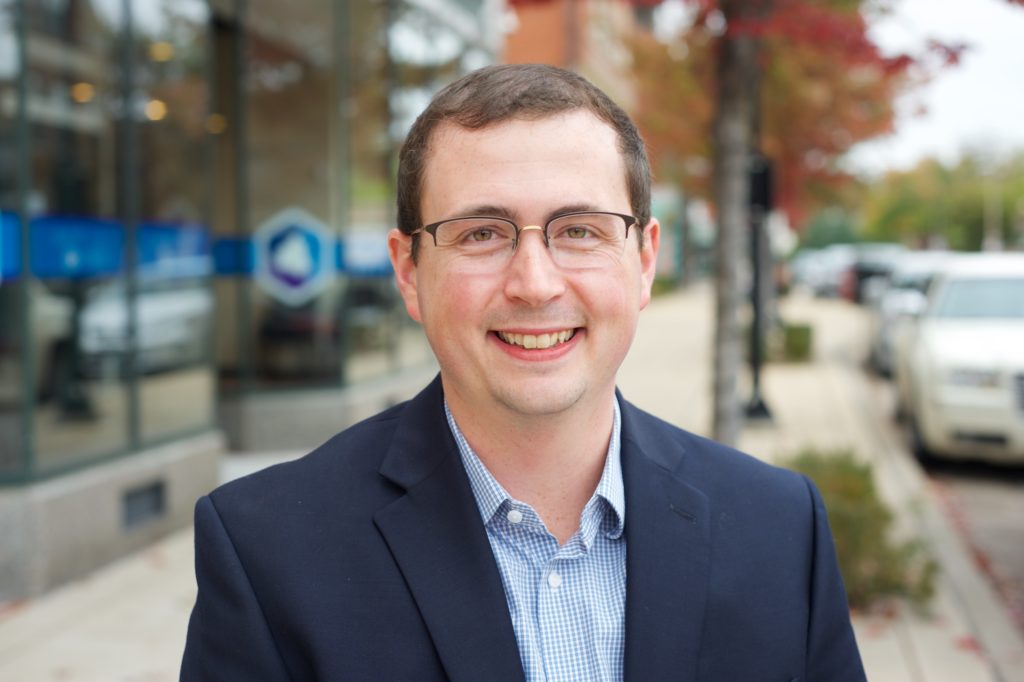
Our focus is on adults. I’ll tell you about one of the oldest clients that we have had. There’s a woman that is a participant at Kingdom House, and they do wrap around family support services. As a part of our partnership with them, we provide free classes and coaching. There’s a woman who’s in her seventies who has her grandchildren living with her, and she had been living in either subsidized housing or an apartment all of her life. Her lifelong goal was to get a house. So, through the programming that we partner with Kingdom House to do, whether that’s coaching or group classes, this woman built her credit, gained access to some programs to help with down payment assistance, and now has a house. That’s awesome for her, but what’s even more impactful is that when she was moving out of her neighborhood to this house that she’s so proud of, other people saw that, and they knew that it’s possible for them to do that too. It doesn’t matter if you’re low-income. You can do this. It doesn’t matter if you’ve never done that before. You can do it. I love that story.
It doesn’t matter if you’re low-income. You can do this. It doesn’t matter if you’ve never done that before. You can do it.
You know, I’ve never known life without a bank account. My mom opened up one for me, probably pretty close to after I was born. Asking, “When was the first time you opened up a bank account?” is foundational to what we do, because with the circles that I’m in, that’s never been a problem. When my colleagues and I talk to groups that have not faced the issue of being unbanked, they don’t get it. They don’t understand that a checking account and a savings account are not something that everybody can get. While we work to build the capacity in the clients we have, one of the biggest challenges we have to overcome is the misperception from people that have always had access to things, that are always able to get a “yes” when they want it. I would like to think that we are effective in changing minds. I think we are to an extent, but there is so much work to do because it’s almost as if being poor, or being low-income, or not having access to these things demonizes you in the minds of a lot of people.
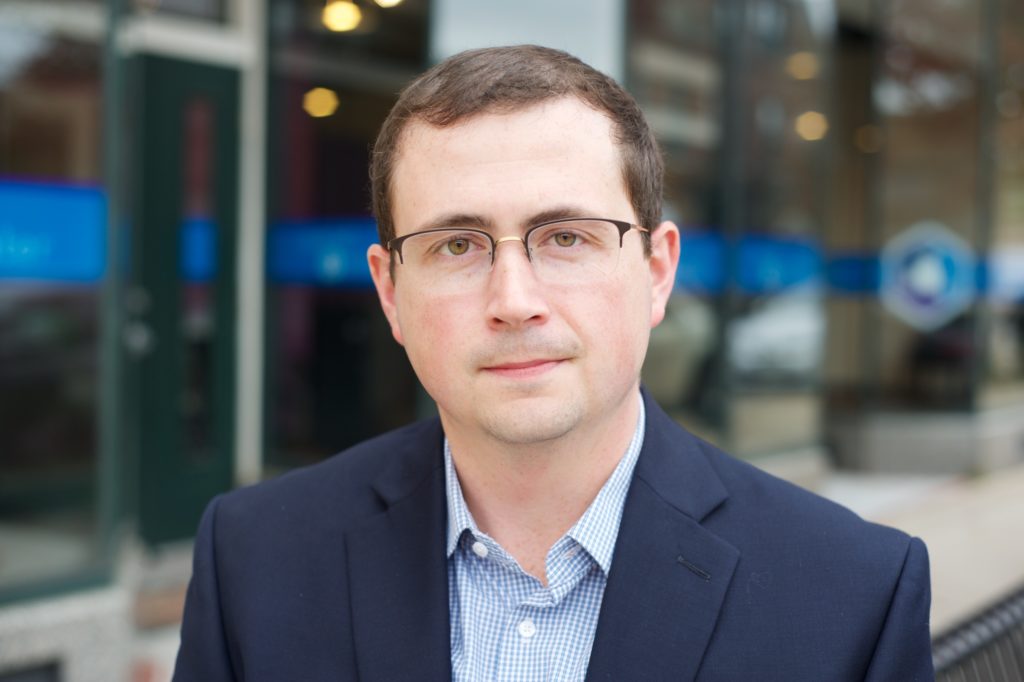
I grew up in a middle class family in a overwhelmingly White community where these are just not issues that we had to face. That’s not to say that White Americans don’t face these challenges, but in St. Louis, especially the City and in North County, it is just a different world from where I grew up. So, my eyes have opened dramatically. I never dreamed that I would be working for the third largest African American owned credit union in the country, running the affiliate non-profit for that institution that serves a predominantly African American base. I can’t identify with the experiences that most of our clients have gone through, but I’ve gotten out of the practice of “speaking for” our client and instead advocate on behalf of them, as well as ask people to just listen.
Racial Equity is complicated, but I think it’s having a heightened awareness of the community around you and being able to listen and set aside predispositions, so that as you interact with people, you can be aware of the biases you might have, and you can work to actively overcome them.
We’ve talked about this as an organization. Our board has talked about this because it’s important from a staffing perspective, but it’s important from a governance perspective that our board is not only bought in, but that they believe in it. And they do. For me, Racial Equity is complicated, but I think it’s having a heightened awareness of the community around you and being able to listen and set aside predispositions, so that as you interact with people, you can be aware of the biases you might have, and you can work to actively overcome them. How that manifests in what we do is that, number one, we help everybody that walks through our doors. And, secondly, we recognize that there are systemic issues that prevent the majority of our client base from accessing the things that, for example, I take for granted. So, we work to make sure that regardless of who you are, you get fair and equal treatment. That sounds kind of cliché, but the biggest piece for us is being aware, acknowledging, and then working to overcome those preconceptions with our clients and with banks.
For instance, there is a small institution that was looking to do financial education because they hadn’t had any opportunities and didn’t know how to approach it. We talked to them about coming out to participate in a credit fair that we do where we pull credit reports for clients of partner groups. So, they’ve got a group of clients and then we partner up with volunteers, typically from banks or from our staff, to sit down and do one-on-one credit coaching using that credit report. Before we did this, we told the bank, “Hey, we’re going to have you at the Fathers’ Support Center. This is what the day is going to look like,” and there was a little bit of apprehension from them. They said, “Listen, we want to do this but aren’t a lot of those guys there formerly incarcerated? Aren’t they long-term unemployed with kind of sketchy pasts?” We said, “Well, yes. They are people though.” We could have just dismissed them and said they’re racists, they’re bigoted, they’re this, they’re that. But, instead, we said, “Let’s do an orientation talking about what Fathers’ Support Center is, what you’re going to see on these credit reports, and the situations that these guys have gone through.” What was great was that a lot of the perceptions or what these volunteers thought was going to be true, their guard came down. You could see that they were starting to think that these were just people. What was really funny was that the guys in the program that were going to participate were equally apprehensive, like, “These people are going to come in with suits and ties on, they’re going to judge us, banks don’t like us because we’ve got bad credit.” So, we did an orientation with them, too. Then, at this credit fair, both groups had been disarmed, some of the clients that met with bankers continued the conversation, and in that instance, that’s a manifestation of what we do as an organization.
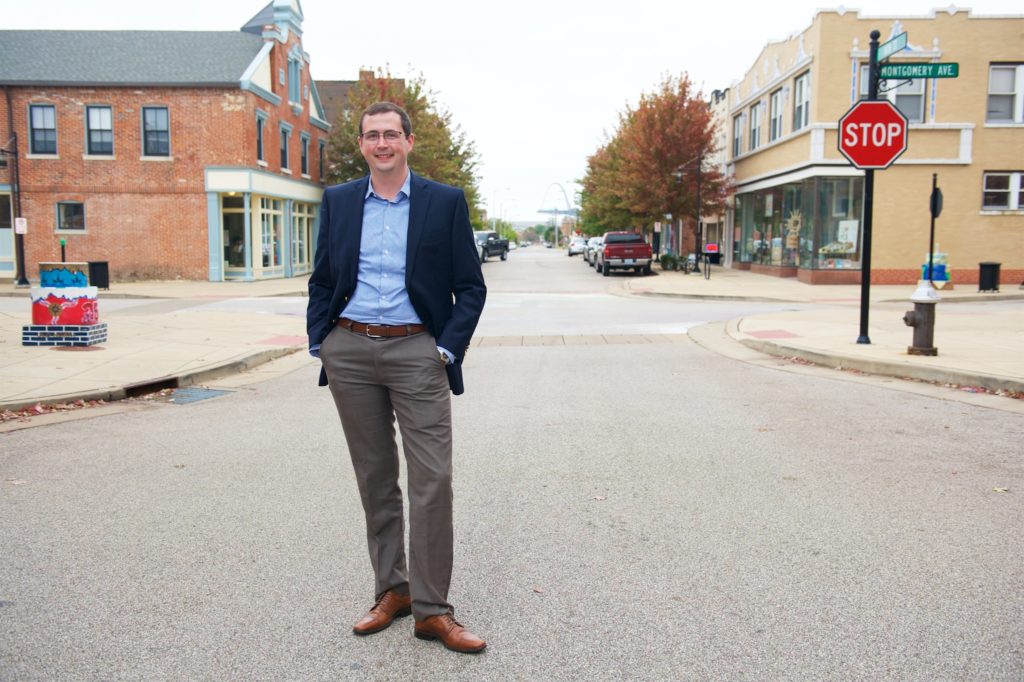
If we do anything, we try to humanize our clients to our volunteers and break down those perceptions with our bank partners. The hope is that the next time that they’re in a situation, where maybe they would have been uncomfortable before, they’ve got a different perspective. Just because someone’s got trashed credit due to past mistakes, they might better understand why that happened to somebody. Somebody lost their job and could not keep up with it. Somebody had a medical emergency that just completely destroyed their ability to access affordable loans. It happens because people don’t necessarily have the means, or the safety net, or the support system to bounce back. We try to build bridges, whether that’s with institutions in the community, or with the community and other partners.
Why is this important? Why don’t people have access to credit? Why is having a bank account so hard for certain people?
When we reference the Ferguson Commission report, a lot of the time it’s when we are seeking new partners to accomplish our mission. When they ask, “Is financial capability important?”, we are able to respond, “As a matter of fact, it is. There is this thing called the Ferguson Commission that highlighted why we need these types of interventions.” The more important side of this is that when we go out to talk to a potential partners or advocates, the fact that financial capability is a piece to Forward Through Ferguson, opens up their ears and people start to ask the questions that we want them to ask:“Why is this important? Why don’t people have access to credit? Why is having a bank account so hard for certain people?”
We recently finished a program that went through the summer that was funded by a large national bank and done through United Way. The program depended heavily on using digital media to instruct people that are in the classes. We always cringe when that happens. I don’t know that we’re going to apply for this funding again next year because you have a computer that’s talking to people, and it doesn’t translate well. It doesn’t connect. And we find that a lot of the curriculum that these institutions create is not culturally competent. When I say culturally competent, I don’t mean from a racial perspective. I mean from an economics perspective. So, when the curriculum focuses on, “You should only invest if you have $10,000 in liquid assets,” that turns people off immediately. After we went through this process and met the grand obligations, we sat down as a team, and said, “Is it really worth us going after funding sources that are going to create confusion for our clients, that are not reaching our clients in the right way, that can be a headache from the perspective of how we measure success?” We’re actively thinking, “Are we going to turn down a $5,000-$10,000 grant, which is somewhat significant, next year because of all these reasons? I think, probably, yes.”
When we apply a Racial Equity lens, knowing that our population is primarily low-income African American facing economic issues in the past, we’ll bypass certain funders because they just don’t get it. We provide a ton of feedback to funders too. Whether it’s listened to or not, we’ll see. But, for us, we try to advocate. In the case of the funder from this past summer, we were active and meaningful with the communication we gave back to them. My hope would be that they take it to heart and perhaps pilot a new program with us so we could help them to make a better outreach medium for them to use.
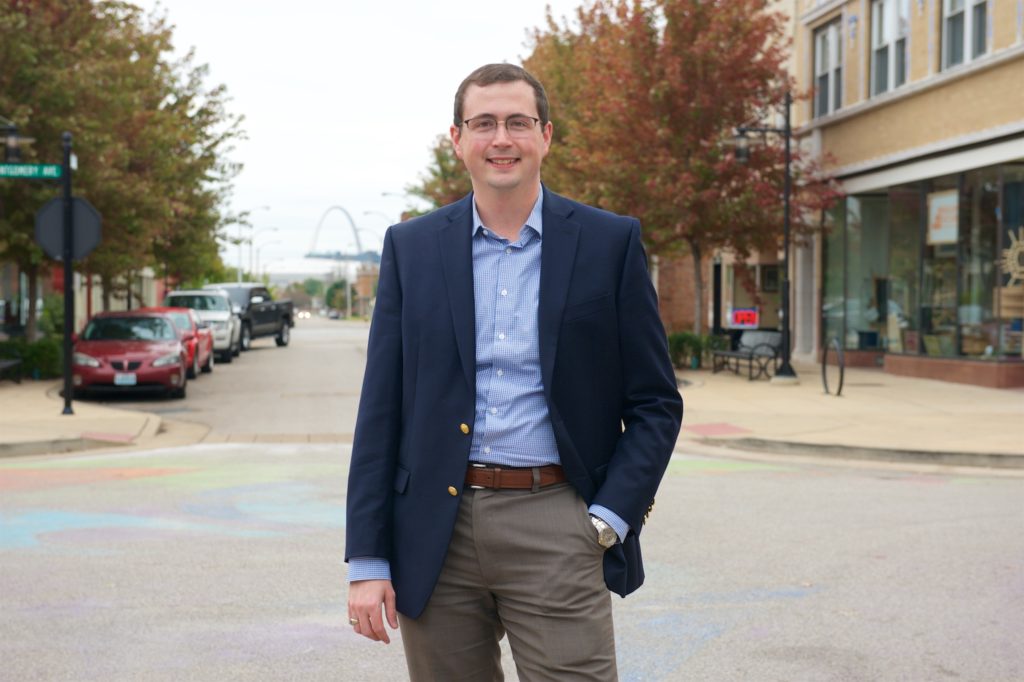 Overall, the importance of listening to people is monumental. Listen. Because it is so easy to judge somebody by the way that they dress, by the way that they look, all of these things that really don’t matter. We’re always told to do that, but how many of us actively set aside our predispositions? I’m still guilty of it everyday, but the work that I do here, the people that I’m surrounded by and who I get to be around on a daily basis remind me that I am not perfect. I can always be better. As long as I try, I can be a part of making a positive difference in an individual’s life or in the community that I live in. The work that we’re doing and this organization allow me to see that there is fruit from the labor that we provide, and people are increasing their financial capability. Moms are able to save for their child’s college account. Families are purchasing homes. People are overcoming credit issues. These things are actually happening in St. Louis.
Overall, the importance of listening to people is monumental. Listen. Because it is so easy to judge somebody by the way that they dress, by the way that they look, all of these things that really don’t matter. We’re always told to do that, but how many of us actively set aside our predispositions? I’m still guilty of it everyday, but the work that I do here, the people that I’m surrounded by and who I get to be around on a daily basis remind me that I am not perfect. I can always be better. As long as I try, I can be a part of making a positive difference in an individual’s life or in the community that I live in. The work that we’re doing and this organization allow me to see that there is fruit from the labor that we provide, and people are increasing their financial capability. Moms are able to save for their child’s college account. Families are purchasing homes. People are overcoming credit issues. These things are actually happening in St. Louis.
-Paul Woodruff, Executive Director of Prosperity Connection

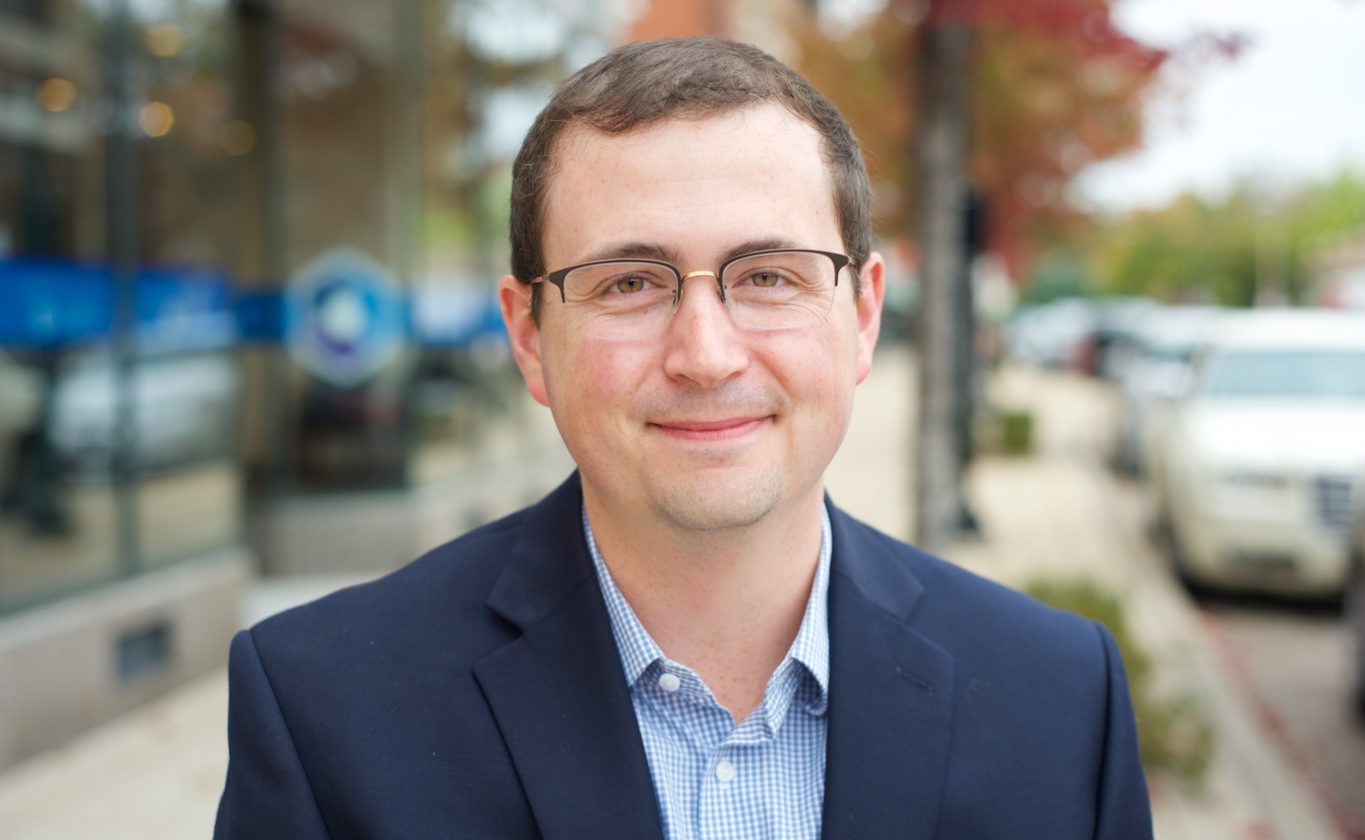
#FwdThruFerguson